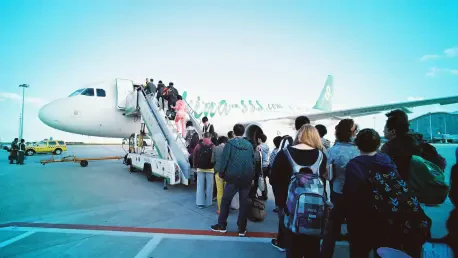With the resurgence of business travel in recent years, companies are increasingly focused on understanding domestic and foreign markets to secure a competitive advantage. This renewal in business travel brings substantial economic benefits but also imposes significant responsibilities on organizations to safeguard their employees while they are on the move. A recent survey revealed that although more than half of travel managers provide safety training for travelers, a substantial number still do not. It is clear that there is a considerable need for improvement in this area. Human resources professionals are pivotal in ensuring traveler safety by implementing effective risk management strategies.
Today’s global environment presents a myriad of challenges, from large-scale natural disasters to geopolitical unrest and evolving travel policies. HR departments are often tasked with managing travel risks and upholding the duty of care, ensuring employees receive adequate support before, during, and after their trips. Developing an effective travel risk management program entails understanding destination risks, emergency response policies, and providing access to round-the-clock assistance.
Periodic Training
One of the most effective ways to maintain traveler safety is through regular training for travel program managers and employees. This training should not only cover general travel safety protocols but also provide detailed briefings tailored to specific destinations. By understanding local risks and cultural nuances, employees can be better prepared for the challenges they might face.
The importance of comprehensive training cannot be overstated. Employees should be aware of the necessary precautions, including understanding the legal landscape and potential health risks associated with their destinations. Training sessions should be updated regularly to reflect changing conditions and emerging threats. Additionally, leadership teams must be involved in these training programs to ensure consistent messaging and support throughout the organization.
Pre-Trip Approval Processes
Implementing thorough pre-trip approval procedures is another critical step in managing travel risks. Assessing potential risks before travel begins allows organizations to plan more safely and efficiently. This involves researching destinations and routes to identify possible threats, understanding the political climate, and considering recent developments that could impact travel safety.
A comprehensive safety assessment should include input from security experts and consideration of an employee’s individual needs and circumstances. By evaluating these factors, HR can make informed decisions about whether to approve or alter travel plans. Pre-trip briefings should also include practical advice on avoiding risky situations and responding effectively in case of an emergency.
Comprehensive Travel Insurance
Investing in extensive travel insurance is a vital component of travel risk management. Such insurance should cover a wide range of potential emergencies, including medical issues, evacuations, and other crises that might arise during travel. Regular reviews of these policies ensure they remain up-to-date and adequate for the current and future needs of employees.
Organizations must select insurance policies that offer robust coverage and can provide immediate assistance worldwide. This might include access to emergency medical services, support for repatriation, and coverage for unexpected disruptions. Comprehensive travel insurance not only protects employees but also mitigates financial risks for the organization.
Partner with Experts
Collaborating with travel risk management specialists can greatly enhance an organization’s ability to manage traveler safety effectively. These experts bring specialized knowledge and experience that can be invaluable in preventing and responding to emergencies. Partnering with such specialists ensures that organizations have access to critical emergency response services when needed.
Travel risk management experts can provide tailored advice on navigating complex situations, from political unrest to natural disasters. Their expertise allows HR teams to develop strategies that are both proactive and reactive, ensuring travelers have the best support possible. Additionally, these partnerships can facilitate continuous improvement of travel policies and procedures.
Maintain Communication Channels
Maintaining open lines of communication with travelers is crucial throughout their journeys. This enables HR teams to provide timely updates and support in case of emergencies. Regular check-ins and easy access to help can make a significant difference in preventing and managing travel-related issues.
Effective communication strategies should include multiple channels, such as email, phone, and specialized travel apps, to ensure travelers can reach out at any time. Real-time updates on potential threats and changing conditions can help travelers make informed decisions and adjust their plans as necessary. Consistent communication also reassures employees of the organization’s commitment to their safety.
Invest in Tracking Technology
With the resurgence of business travel in recent years, companies are increasingly focused on understanding both domestic and foreign markets to secure a competitive edge. This revival in business travel brings substantial economic benefits, but it also imposes significant responsibilities on organizations to ensure the safety of their employees while they are traveling. A recent survey showed that although more than half of travel managers provide safety training for travelers, a notable number still do not, indicating a considerable need for improvement in this area.
Human resources professionals play a crucial role in ensuring traveler safety by implementing effective risk management strategies. Today’s global environment presents a variety of challenges, from large-scale natural disasters to geopolitical unrest and constantly evolving travel policies. HR departments are often in charge of managing these travel risks and upholding the duty of care, ensuring employees receive adequate support before, during, and after their trips. Developing an effective travel risk management program involves understanding destination risks, establishing emergency response policies, and providing access to round-the-clock assistance.









